It doesn’t matter what season – weather damage is inevitable. It can be in the middle of a hot sweltering summer day or a torrential downpour. Weather does and will continue to be a significant threat to your car. But we are not helpless, though. There is something you can do to protect your car from weather damage in every season. Let’s talk about each one in this article.
 How to protect your car from weather damage during extreme heat
How to protect your car from weather damage during extreme heat
Extreme heat during the summertime can be uncomfortable for you, and it can cause a lot of damage to your car’s surfaces. Here are some things you can do to prevent such issues.
Find shade
Always park your car in the shade as much as possible to prevent the heat of the sun from hitting your car directly. However, it would help if you also were wary of where you are parking beneath. If you park beneath a tree, you may have to deal with bird droppings or a tree branch falling. You also have to consider sap and other organic materials from the tree that can cause staining.
If you can’t find a shade for your car, invest in a windshield sunshade at the very least. This will protect your car’s interior surfaces and will help lower the internal temperature of your vehicle.
Check the cooling system
If it’s hot outside, your car’s cooling system will be working double-time to keep you cool inside. This is a good time for you to check it to ensure it is in the best shape possible.
 How to protect your car from weather damage during the rainy season
How to protect your car from weather damage during the rainy season
The rainy season might be the perfect time for hugs and hot cocoa, but it can do extreme damage to your car if you are not careful. Well, it’s not the rain per se that you should worry about, but all the chemicals and oils that come with it. Let’s find out what you can do to protect your car.
Proactively wash and wax your car
One of the most significant issues with rain is the water spots it leaves behind. To prevent such things from happening, you should proactively wash and wax your car to seal and coat it properly. This will give your vehicle a barrier between the paint and the rain. This means cleaning your car is much more manageable while protecting it at the same time.
Seal all openings
The interior of your car is off-limits to water. As such, you should make sure you seal all openings that will allow water to seep through the interiors of your car. Double-check the rubber linings on the doors and have them repaired right away if you see issues.
 How to protect your car from weather damage during blizzards and extreme cold
How to protect your car from weather damage during blizzards and extreme cold
When people talk about extreme weather, one of the first things that come to mind are blizzards – which is warranted. Snow is something we don’t experience often here in Atlanta, but it can cause a lot of damage to your car if you’re traveling up North.
Cover your windshield with a towel
Are you tired of waking up in the morning only to see your windshield covered in snow? This means you have to scrape it all off before you start your day. Eliminate this by placing a towel on your windshield the night prior. When morning comes, remove the towel along with all the snow that accumulated that night.
Check your tire pressure
When it is colder, your tire pressure might get low – dangerously low. So make sure to check it now and then and fill it up once it gets too low.
Get snow tires
If you experience frequent snowstorms, you might as well get snow tires. These tires are created specifically to help cars during winter road conditions. If you don’t want to invest in snow tires, consider getting chains – but make sure that they’re allowed where you will be driving first.
Get special wiper fluid
If you feel like the current wiper fluid you are using is only causing more problems than solving them, you should get winter-specific wiper fluid. This type of wiper fluid does not produce streaks and will help prevent your windshield from getting dirty.
All-Weather Maintenance And Repair At T3 Atlanta
Feel like there’s something wrong with your car? Take it to T3 Atlanta and let one of our expert mechanics take a look. We specialize in Nissan, Toyota, Infiniti, and Lexus cars. T3 Atlanta is a trusted name in car repair and maintenance in the greater Atlanta area, so you can be sure you are in good hands.
Give T3 Atlanta a call or a visit today!
 This question is self-explanatory, but to better handle flood damage in your car, you have to understand what damage it does first.
This question is self-explanatory, but to better handle flood damage in your car, you have to understand what damage it does first.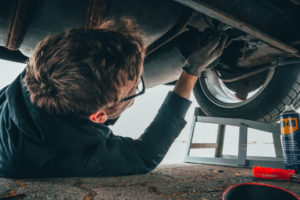
 Stop
Stop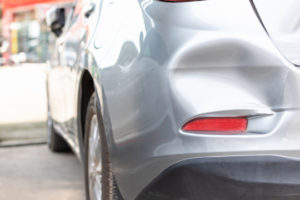 Take pictures
Take pictures 1. Use your handbrake
1. Use your handbrake 5. Don’t forget your tire positioning
5. Don’t forget your tire positioning When your shifter seems to be stuck in park when parked on a slope, this could be because the parking pawl gets wedged on the parking gear due to pressure. Just imagine the whole weight of the car and passengers being put on the parking pawl. There will be difficulty in shifting if this is the case.
When your shifter seems to be stuck in park when parked on a slope, this could be because the parking pawl gets wedged on the parking gear due to pressure. Just imagine the whole weight of the car and passengers being put on the parking pawl. There will be difficulty in shifting if this is the case.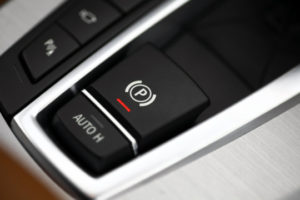 Another reason why the interlock feature does not disengage appropriately is because the system does not detect the brake pedal being depressed. To diagnose if this is the issue, have another person check if your brake lights light up when you step on the brakes. If they fail to light up, this can be the reason why you can’t shift your car from park.
Another reason why the interlock feature does not disengage appropriately is because the system does not detect the brake pedal being depressed. To diagnose if this is the issue, have another person check if your brake lights light up when you step on the brakes. If they fail to light up, this can be the reason why you can’t shift your car from park.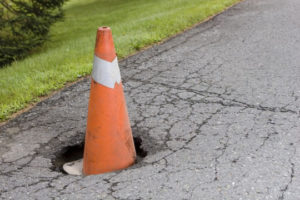 A pothole is a general term that refers to any depression in the road surface where traffic has removed broken pieces of the road. As a result, a hole is created on the road surface. Several things can cause potholes, but the most common culprits involve water in the underlying soil structure and heavy traffic passing over.
A pothole is a general term that refers to any depression in the road surface where traffic has removed broken pieces of the road. As a result, a hole is created on the road surface. Several things can cause potholes, but the most common culprits involve water in the underlying soil structure and heavy traffic passing over. Potholes are bad news for your car, as hitting one can cause damage to your vehicle. The damage will depend on how hard you “hit” the pothole. The faster you are going, the more problems it can cause. That is why it is always wise to go slow in areas riddled with potholes. But what actual damage can potholes do? Let’s find out.
Potholes are bad news for your car, as hitting one can cause damage to your vehicle. The damage will depend on how hard you “hit” the pothole. The faster you are going, the more problems it can cause. That is why it is always wise to go slow in areas riddled with potholes. But what actual damage can potholes do? Let’s find out. Before we talk about what you do when the airbag warning light comes on, let’s first talk about what airbags are. An airbag is considered a passive vehicle occupant-restraint system that activates whenever it senses a collision. It is designed to inflate within milliseconds to protect the passengers from fatal injury, then subsequently deflate to prevent suffocation.
Before we talk about what you do when the airbag warning light comes on, let’s first talk about what airbags are. An airbag is considered a passive vehicle occupant-restraint system that activates whenever it senses a collision. It is designed to inflate within milliseconds to protect the passengers from fatal injury, then subsequently deflate to prevent suffocation.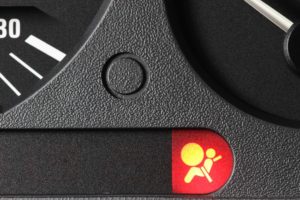 What does it mean when the airbag warning light is on?
What does it mean when the airbag warning light is on? Sound: Squealing
Sound: Squealing
 If you want to drive safely, you need to see what is in front of you. Just imagine, you are driving a 3000-plus pound vehicle traveling at 65 miles an hour. This means you need at least 316 feet to get your car into a complete stop – and this is during ideal conditions.
If you want to drive safely, you need to see what is in front of you. Just imagine, you are driving a 3000-plus pound vehicle traveling at 65 miles an hour. This means you need at least 316 feet to get your car into a complete stop – and this is during ideal conditions.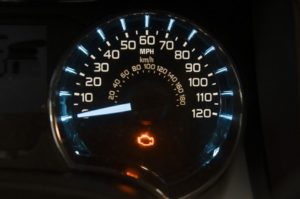 There are several lights on your dashboard that can tell you what condition your car is in. Of all these lights, there are two that can signify that your car is about to incur a big repair bill within minutes. These two lights are the temperature and oil lights. When they turn on, it means your engine is overheating, or you are losing oil pressure. Once they go on, stop and pull over right away.
There are several lights on your dashboard that can tell you what condition your car is in. Of all these lights, there are two that can signify that your car is about to incur a big repair bill within minutes. These two lights are the temperature and oil lights. When they turn on, it means your engine is overheating, or you are losing oil pressure. Once they go on, stop and pull over right away.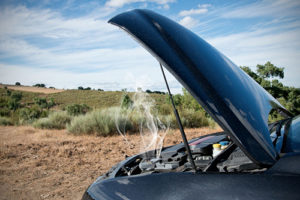 If your car is smoking and if you see fire, then you should stop and pull over as soon as you can. You can also stop and get out right away as long as it is safe to do so (eg. you are driving on a remote country road with no one in sight).
If your car is smoking and if you see fire, then you should stop and pull over as soon as you can. You can also stop and get out right away as long as it is safe to do so (eg. you are driving on a remote country road with no one in sight). Fog lights, or fog lamps, are a unique set of lights installed in cars with the specific purpose of helping out the driver in situations with reduced visibility. They can often be found below the headlights (how low depends on the car model).
Fog lights, or fog lamps, are a unique set of lights installed in cars with the specific purpose of helping out the driver in situations with reduced visibility. They can often be found below the headlights (how low depends on the car model). As the name suggests, fog lights are used during foggy weather or weather that offers poor to zero visibility. If you’ve had the chance to drive under heavy rain or fog, your regular headlights often provide little to no help improving your vision. In some cases, the setup of your headlights can even cause glare to the driver, making it much more dangerous. This is because the light being given off by your headlight gets bounced off (or back to you) in fog, making them useless.
As the name suggests, fog lights are used during foggy weather or weather that offers poor to zero visibility. If you’ve had the chance to drive under heavy rain or fog, your regular headlights often provide little to no help improving your vision. In some cases, the setup of your headlights can even cause glare to the driver, making it much more dangerous. This is because the light being given off by your headlight gets bounced off (or back to you) in fog, making them useless.







